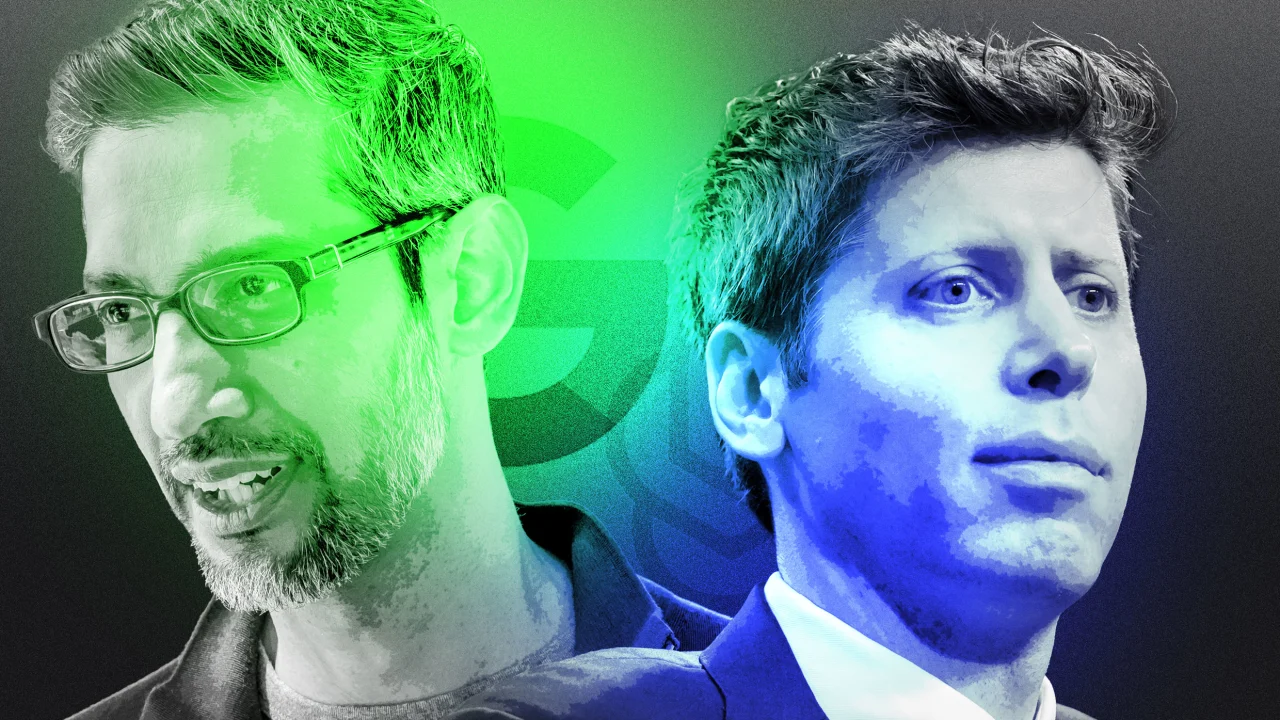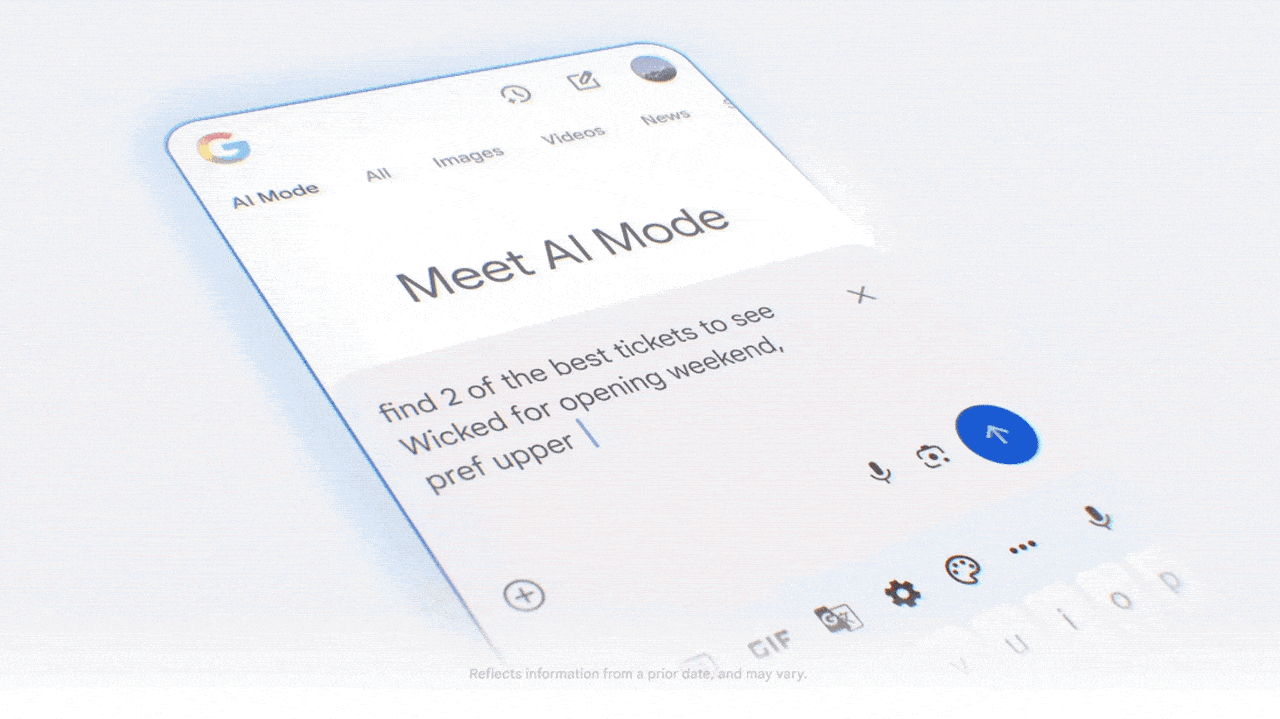OpenAI vs. Google could be the heavyweight battle of the half-century

Welcome to AI Decoded, Fast Company’s weekly newsletter that breaks down the most important news in the world of AI. You can sign up to receive this newsletter every week here.
An OpenAI browser could directly target Google’s ad empire
OpenAI is preparing to launch an AI-powered web browser in the coming weeks, according to a bombshell report published by Reuters on Wednesday. The move should be seen as a direct challenge to Google’s financial heart: its $200 billion interactive advertising machine.
More than 400 million people already use OpenAI’s ChatGPT, and many of them routinely rely on it as their interface to the web. Currently, when users click a source link within a chatbot search result, the target website opens in a third-party browser like Chrome. With its own browser, ChatGPT would launch source citations and other links into a platform under its own control.
An OpenAI browser would also encourage users to fetch web information using the company’s AI models and web index. It could become the ideal platform for AI “agents” capable of more than search, handling tasks like booking reservations, filling out forms, and interacting directly with websites.
Such a browser could eventually pose a serious challenge to Google’s core business: selling ads around its search results. Chrome makes it very easy for users to search the web with Google Search, and many of those searches (especially for products and services) offer lucrative ad opportunities. Chrome also supplies Google with mountains of user browsing behavior data, which it leverages to target ads more effectively.
Generative AI represents a radically different method of retrieving web content. While Google Search relies on web crawlers and a complex algorithm to return relevant content and links, generative AI models are trained on a compressed version of the internet, allowing them to provide customized packages of information that directly answer the user’s query.
Whether 400 million ChatGPT users will abandon their current browsers for OpenAI’s AI-first experience is the billion-dollar question. Google’s stock barely moved on news of OpenAI’s browser. Either investors don’t yet fully grasp the magnitude of the threat, or they’ve already factored it into Google’s share price.
For OpenAI, a browser war with Google would be a hard fight for OpenAI. Over 3 billion people around the world use Chrome. But the timing may be right for OpenAI to make a move. The Department of Justice is demanding that Google divest Chrome, following a federal judge’s ruling that the browser contributes to an unlawful search monopoly. OpenAI has even testified that it would be interested in buying Chrome if Google is forced to sell.
OpenAI may be the only AI company with the momentum to challenge Google right now. Perplexity, which released its own Comet browser on Wednesday, also aims to take on Google Search with AI—but as a startup, it may lack the resources to mount a serious challenge. Perplexity vs. Google is a David-and-Goliath story. But OpenAI vs. Google may prove to be the biggest tech battle of the first half of the 21st century—a clash between an aging heavyweight and a young challenger with a powerful new punching style.
AI is spoofing within the highest levels of power
Somebody used an AI voice generation tool to clone the voice of Secretary of State Marco Rubio and then used Rubio’s voice and writing style to send fake messages to several foreign ministers, a U.S. governor, and one member of Congress. The provocateur sent the messages via the encrypted voice and text messaging platform Signal, using an account named “[email protected],” The Washington Post reported, citing a State Department cable it had obtained. The cable, dated July 3, stated the impostor “left voicemails on Signal for at least two targeted individuals” and sent text messages inviting others to communicate on the platform.
Creating such cloned voice messages is relatively easy. All an impostor needs is a 15-second sample of the target’s voice, which is readily available for public figures like Rubio. The sample is then uploaded to an AI voice generation tool such as ElevenLabs or Hume. (The service used in this case is unknown.) After that, the user declares they have permission to use the sampled voice and types in what they want communicated. These tools can even reproduce the emotional tone of the sampled voice (although there’s no indication that was done here). The identity of the person who created the recordings remains unknown, and neither the recordings nor their content has been made public. According to the State Department cable, the person appeared to be trying to gain access to the “information or accounts” of powerful government officials.
This kind of incident isn’t exactly new. In May, someone breached White House Chief of Staff Susie Wiles’s phone and impersonated her in calls to senators and business executives. The FBI has since warned of an “ongoing malicious text and voice messaging campaign” using AI-generated voices to target senior government leaders.
We should expect this to happen again and again in the future, because a considerable gap still exists between the capabilities of current AI voice generation tools and the common understanding of their level of sophistication.
Ramp data: Did enterprises just hit peak subscription-AI spend?
Ramp AI, which tracks enterprise procurement on its platform, says U.S. business spending on AI subscriptions dipped by half a percent last month. This follows steady growth in subscription spending throughout 2023 and 2024, and an even sharper rise during the first five months of 2025.
The share of U.S. businesses with paid subscriptions to AI models, platforms, and tools fell from 42.5% in May to 42% in June, the Ramp data shows. The share of U.S. companies subscribing to such products from OpenAI shrank slightly from 34.7% to 34.2%, while 9.9% of companies accessed them from Anthropic, up from 9.3% in May.
The spending decreases were driven by companies in the tech and finance sectors. Seventy percent of U.S. tech businesses bought access to AI models, platforms, and tools in June, down from 71% in May. Among finance companies, the percentage declined from 57% to 56%. Slightly more healthcare and manufacturing companies bought access to AI during June, but in lower numbers.
Ramp economist Ara Kharazian said on X that the spending dip may be the beginnings of a signal that enterprises are suffering from AI “pricing fatigue.” He clarifies to Fast Company that his firm doesn’t believe that companies are using less AI, but they may be looking for ways to economize. He says the decrease was driven by companies canceling chat subscriptions or switching to free versions. (Google recently started integrating Gemini Pro for free in all workspace plans, for example.)
And the profile of the typical AI subscriber is changing. “We are getting out of the early adopter phase,” Kharazian says. “The metrics are being moved not by the early adopters but the mainstream adopters: companies who don’t want or need the most advanced versions but still want to enable employees with a low-cost, still valuable AI tool. That’s the core user now.”
Ramp’s AI Index samples more than 30,000 American businesses and billions of dollars in corporate spend using data from Ramp’s corporate card and bill pay platform. Within its methodology statement, Ramp disclaims that its results may underestimate actual adoption rates due to the prevalence of businesses using free AI tools (which it can’t track), or when employees use their personal AI accounts for work tasks.
Meanwhile, investors keep pouring big chunks of cash into new AI labs and startups. During the second quarter, 45% of global funding—or $40 billion—went to AI sector companies, reports Crunchbase. Notably, Mira Murati’s Thinking Machines Lab and Ilya Sutskever’s Safe Superintelligence—both a year old or less—each raised $2 billion. Other large investments went to Anduril Industries ($2.5 billion), Grammarly ($1 billion), and Anysphere ($900 million).
More AI coverage from Fast Company:
- Moonvalley releases its ‘power tool’ for AI filmmaking
- Racist AI-generated videos are all over TikTok, thanks in part to Google’s Veo 3 tool
- Why the new rulings on AI copyright might actually be good news for publishers
- These personality types are most likely to cheat using AI
Want exclusive reporting and trend analysis on technology, business innovation, future of work, and design? Sign up for Fast Company Premium.
What's Your Reaction?
 Like
0
Like
0
 Dislike
0
Dislike
0
 Love
0
Love
0
 Funny
0
Funny
0
 Angry
0
Angry
0
 Sad
0
Sad
0
 Wow
0
Wow
0





























































































